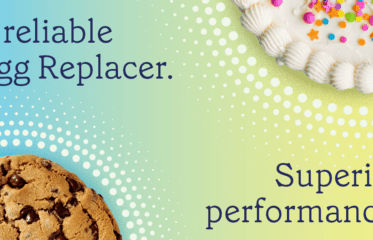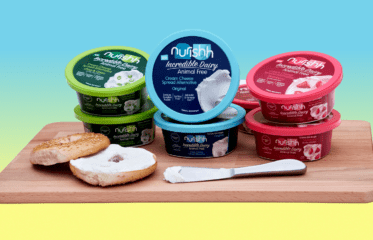Growing the Protein Pie

Guest author: Mary Shelman, Agtech Expert, The Shelman Group
Perfect Day is built on the belief that the only way to achieve our vision of a more equitable, resilient, and diverse food system is by partnering with leaders who are positioned to feed a growing population sustainably and deliciously. Navigating how to do that requires the expertise of those who deeply understand our current system and how new entrants can contribute to its stability and growth.
We are so fortunate to have Mary Shelman, one of the world’s foremost voices in food and agriculture, as one of our Sustainability & Health Advisory Council members. Following the announcement of our SHAC in April, we had an illuminating dialogue with her about our food system, Perfect Day’s place in it, and “the power of collaboration to grow the total market pie.” Her perspective is so thoughtful and rich, we asked if she would be willing to let us share it. We’re honored she said yes, and are pleased to share her words below.
I’ve lived and worked in the agriculture and food industry almost my entire life. I grew up in a small town in Kentucky where my father ran a farm equipment business. I spent my childhood riding along on sales and repair calls and, as a teenager, worked summers and weekends selling tractor parts. My dad bought a farm close to town when I was in junior high school and added farming to his already busy schedule. He converted plowed fields to no-till in the mid-1970s, long before conservation agriculture was a thing.
After earning a degree in chemical engineering and doing a short stint in the oil industry, I rediscovered my passion for ag — and agribusiness — at Harvard Business School. Over the 35 years since MBA graduation, I’ve chaired the board and set strategy for an integrated genetics and agribusiness venture, studied global ag and food trends as Director of the Harvard Business School’s agribusiness program, co-created a new vision for the Irish food industry centered on sustainability, and mentored dozens of agribusiness and agtech startups and students alike. Food and farming have always been at the heart of my work, and all along the way I’ve championed talent, innovation, and collaboration to solve complex problems and create pathways for growth.
I joined Perfect Day’s Sustainability and Health Advisory Council because I believe that the time-honored agriculture sector and novel technological solutions each have a role to play in building a holistically stronger food system. I’m intrigued by the company’s approach to food production using animal-free technology that begins in the dairy aisle and extends well beyond. And I share their vision for a more robust, responsive, and resilient food system for all of us.
Taking Cues from Consumers
Globally, the dairy industry is worth nearly US$700 billion, and it’s poised to grow to over $1 trillion by 2024.1 And yet, despite this projected growth, a growing number of consumers are leaving conventional dairy for plant-based alternatives that better align with their values.
We know that young consumers, especially, are leading the way on values-driven decision-making. As an increasing number of experts2 point out the link between human diets and planetary health — with many calling for a global reduction in livestock products to curb deforestation and limit global warming3 — consumers are responding by moderating their meat and dairy consumption. They’ve grown ever more concerned about climate change, the environment, animal welfare, and a host of other issues. Their choices about what to buy and eat reflect these new values; as a result, 39% of U.S. households now purchase plant-based milks, and these products now account for 15% of all U.S. retail milk sales.4
No longer are shoppers satisfied by the message that the lowest price in the supermarket dairy case equals the highest value; they must be convinced that a product reflects their deeply held convictions at every point along the product’s supply chain. Consumers are asking questions about how products are made, who makes them, what their supply chain looks like, and what benefits will be reaped by their purchase. They demand these attributes, with a catch: they’re also unwilling to sacrifice on taste or nutritional quality. When products can answer to most or all of consumers’ new requirements, only then will brands have won the jackpot in consumer loyalty.
What Perfect Day Brings to Dairy
So what do these changing consumer requirements mean for food producers? Historically, the agricultural supply chain has been relatively opaque to consumers. Food somehow makes its way from distant farms to supermarket shelves. At the same time, information on what consumers want has not flowed to the primary producer due to fragmentation, poor cooperation, and transactional relationships between farmers, processors, and retailers.
But what wins at the supermarket checkout today is precisely the opposite: consumers want more information and more accountability. Those firms that can answer to consumers’ new criteria — and importantly, those that can show exactly how they do it by offering greater supply chain transparency, backed up by data — are able to successfully differentiate themselves and stay ahead of consumer demands.
Perfect Day’s innovative approach to dairy addresses consumers’ key concerns. The company’s recent ISO-compliant life cycle assessment found that their non-animal whey protein generates up to 97% less greenhouse gas emissions compared to bovine whey, demonstrating significant sustainability gains for prospective food company partners looking to reduce their own products’ emissions.5 And because Perfect Day’s dairy proteins are identical to proteins from cow’s milk — without reliance on animal agriculture — they sidestep the perceived animal welfare issues that today drive ethically-minded consumers away. And, perhaps most importantly, finished dairy products, such as ice cream and cream cheese, stand head-to-head on taste and texture with animal-based offerings.
Interestingly, while the plant-based products consumers increasingly turn to do receive high marks on sustainability and animal welfare, they rank lower in terms of the nutrition they can deliver. Traditionally animal-derived proteins, including whey, are known to be easily digestible, scoring highly on bioavailability and promoting sustained energy and muscle growth. We know that consumers value these qualities in their foods. However, many plant-based products presently in the market force trade-offs between perceived sustainability and personal nutrition.
By introducing highly nutritious, dairy-identical but-animal-free ingredients, Perfect Day offers the possibility of exciting new options that can bring consumers back to dairy — or better, prevent them from leaving in the first place. Perfect Day isn’t setting out to displace dairy; rather it is committed to working with the dairy industry to build this new animal-free category together.
Expanding the Pie with New Possibilities
Within established industries like dairy, we’re primed to fear disruptive technologies. That impulse is natural, because they challenge our narrative of how and why we work in agribusiness.
But by subscribing to the myth that disruption is destructive — rather than constructive — we miss out on opportunities for mutual growth. As a longtime advisor in global agribusiness, I’ve witnessed the power of collaboration to grow the total market pie. The most aggressive movers don’t necessarily eliminate their competition; instead, they often pull the industry along with positive pressure — or better yet, partnerships — that continually raise the bar. Throughout my career, I’ve witnessed collaborations between unexpected parties that have yielded successes for all.
Consider what innovative approaches to dairy could look like across the globe:
In regions like Africa and Asia or other areas that today are under-resourced or without the infrastructure to set up conventional dairy supply chains, precision fermentation could open new commodity markets that strengthen regional food security. Installing fermentation facilities and sourcing feedstock locally may be more viable in some areas than developing new cow-calf operations.
Inadequate nutrition in the first 1,000 days of life leads to stunting and a lifetime of lost potential. This is an avoidable tragedy, and not only in the world’s poorest countries. Even in high-income countries, where food is plentiful (perhaps too much so), nutritional inequities persist. By increasing the supply of low-cost, high-quality dairy protein, precision fermentation can improve health outcomes across the globe with new products flowing through wide-reaching channels.
Precision fermentation also offers greater control and sterility in manufacturing processes, reducing the risk of zoonotic pathogen transfer that animal farming poses.6
Finally, precision fermentation invites us to imagine adjacent products. Dairy proteins are by no means the only products under consideration for new supply chains arising from fermentation.
What other new markets could we imagine together?
The Path Forward
I spend a lot of time talking to governments, businesses, farmers, and industry leaders about how to scale our food systems to meet the demands of a growing global population while minimizing the strain between people and nature. So how do we get there?
I believe in collaboration. If we come together where our values align, we can grow the pie for everyone. The solutions aren’t either/or, nor do they need to be. Instead, we’ll need a mix of strategies that lean on the strengths of both existing agriculture sectors and the forward-thinking startups looking to solve wicked market problems. If we commit to working strategically together, we can create a sensible pathway toward a resilient and enduring food system for us all.
References
- Shahbandeh, M. (2021, June 2). Estimated dairy market value worldwide in 2019 and 2024. Statista. statista.com/statistics/502280/global-dairy-market-value/
- Carrington, Damian. (2018, May 31). Avoiding meat and dairy is ‘single biggest way’ to reduce your impact on Earth. The Guardian. theguardian.com/environment/2018/may/31/avoiding-meat-and-dairy-is-single-biggest-way-to-reduce-your-impact-on-earth
- Schiermeier, Quirin. (2019, August 8). Eat less meat: UN climate-change report calls for change to human diet. Nature. nature.com/articles/d41586–019–02409–7
- Good Food Institute. (n.d.). U.S. retail market data for the plant-based industry. gfi.org/marketresearch/
- Perfect Day. (n.d.). Greenhouse gas life cycle analysis. resources.perfectdayfoods.com/articles/lca-executive-summary
- Humane Society International. (2020). An HSI report: The connection between animal agriculture, viral zoonoses, and global pandemics. https://blog.humanesociety.org/wp-content/uploads/2020/10/Animal-agriculture-viral-disease-and-pandemics-FINAL-4.pdf
We’d love to hear your thoughts!
Your email address will not be shared.


